Y’all. I am so glad you’re here, because you are in for a treat. This sleek and sexy chocolate chestnut torte is the order of business today. From the re-release of Alice Medrich’s 1990 cookbook, Cocolat, this is one chocolate torte that has stood the test of time. You’re going to love it!
I was sent a copy of Cocolat for review and also received monetary compensation from Dover Publications. All opinions are my own.
Another great cake to try is my chocolate expresso pound cake.
For ease of browsing, here are all of my cake recipes in one place. Thanks for stopping by!
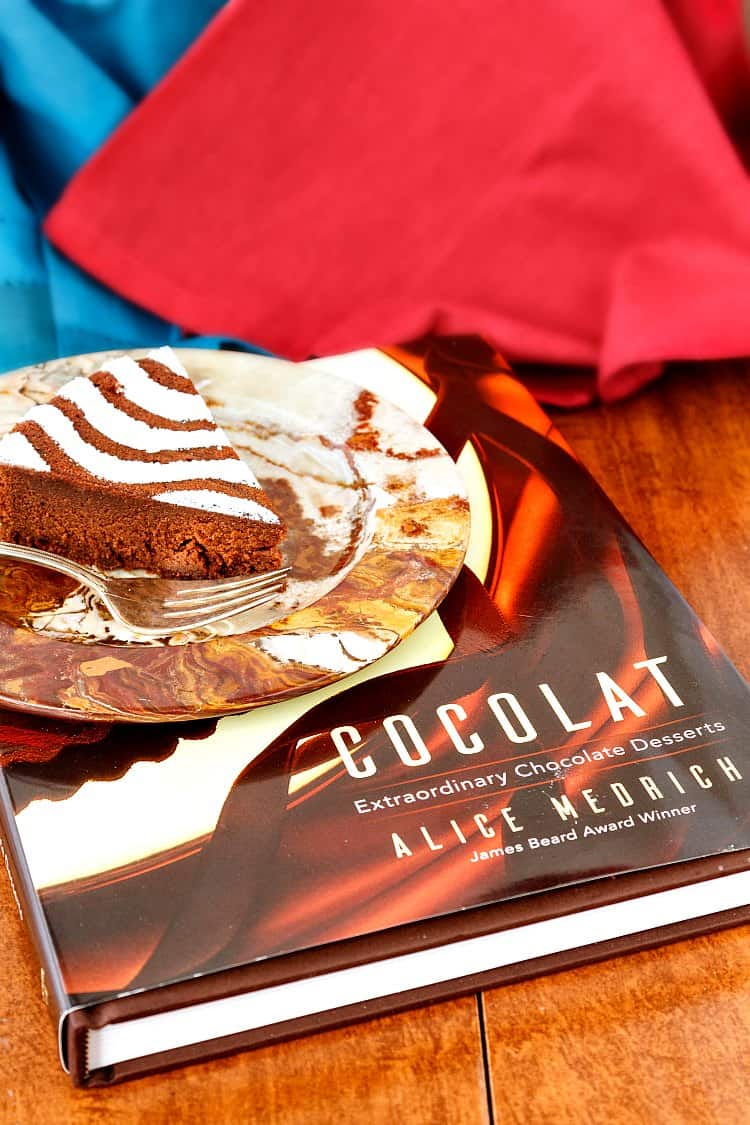
Cookbook Clubs
Do you guys remember the cookbook clubs you could enter back in the late 80’s and 90’s? They’d send you a Thing in the mail and let you buy 8 cookbooks for a penny.
When their mailing to Resident of the little blue house near the airport hit my hot little hands, they had found their target market.
Keep in mind I was not a cook or a baker at the time. But I loved an oversized, glossy-paged cookbook full of sumptuous photographs and rules for making their dreamy subjects.
Pastry Chef Online Participates in Affiliate Programs. If you make a purchase through one of my links, I may earn a small commission. For more information click to read my disclosure policy
Originally published in 1990, Cocolat hit all the marks for my cookbook addition.
- Oversized? Check.
- Glossy pages? Check.
- Sumptuous photographs? Check.
- And rules and guidelines and knowledge. What a treasure.
Alice Medrich and Cocolat
Alice Medrich opened the first of her chain of boutique chocolate shops, Cocolat, in 1976. Think about that. In 1976, I used to stand in front of the window at the Federal Bake Shop at Park Road Shopping Center watching the white-aproned decorators work their magic, seemingly at the speed of light. Swoopy roses, lush leaves, swirls of white, billowy frosting. Cakes were tall and lavishly decorated.
And then Alice came along and showed us all that low, sleek discs of meltingly rich chocolate, shiny with glaze were also cakes. And cakes that packed so much richness and flavor that just a small slice would satisfy.
She taught us to make traditional European tortes, how to make truffles and individual desserts.
From her, we learned the rarefied skills of tempering chocolate, making chocolate ruffles and cigarettes, and of using stencils for decorating.
Alice wanted us to know that icing could be smooth and shiny, that the star tip is not the be all end all of decorating, that by learning a few solid formulas for different dessert components, we could choose to combine them however we wished.
Alice changed the game.
And now, with this new edition of Cocolat, published by Dover Publications, not only do we get to experience the mix of food porn and solid pastry education that was the original, Alice Medrich has updated the book with new front matter with a detailed introduction, notes on ingredients, and most importantly The Chocolate Chart.
The Type of Chocolate You Use Matters
When Cocolat was originally published, Americans were extremely limited in the types of chocolate available for baking.
Baker’s unsweetened, semi-sweet, and bittersweet were pretty much the only games in town, and it was anyone’s guess what percentage of cocoa mass they contained.
Today, there is a vast array of fine chocolates we can use, and most these days give the cocoa percentages.
Medrich went through every recipe from the original book, noting what type of chocolate was used in the original, what types of chocolate available today will yield the best results, and noting any additional information we might find useful.
I have no idea how long it took her to compile all this information, but I’m so glad she did.
When you get your copy of Cocolat, please do not disregard this chocolate chart. Find a recipe you want to make and read the ingredient list. Then flip to The Chocolate Chart, find the recipe (they are listed in alphabetical order) and confirm the type of chocolate you need to ensure the best results.
Would you like to save this post?
For example, I made the Chestnut Chocolate Torte, and it called for chocolate with a cocoa mass between 55% and 60% and not to use chocolate more than 66%.
I was able to find 70% chocolate and a lovely Italian 51%, and I used half of each for an average of 60.5%. The resulting cake is perfection.
Excellent Chocolates to Use in Baking
Of course you can use the chocolate that you can find at the grocery store to do your baking. Some stores are even carrying some higher end chocolates that work really well in baking, such as Endangered Species.
Here are some other great chocolates to consider for your baking needs.
The Chestnut in Chocolate Chestnut Torte
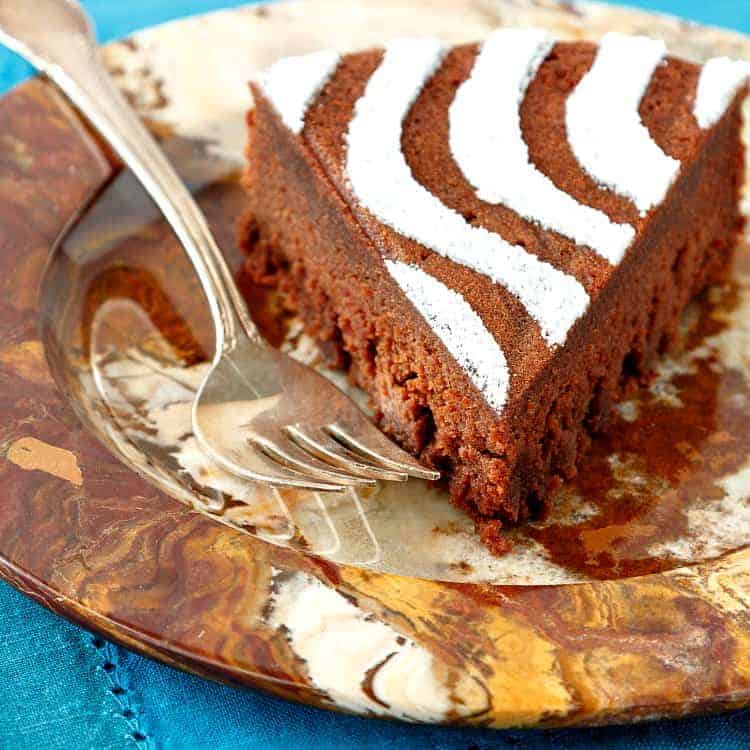
My wonderful friend Jamie who writes Life’s a Feast gifted me a can of chestnut puree from The France.
It had been sitting in my pantry for longer than I care to admit, waiting for the perfect recipe to come along. And when I was searching through the chapter on Chocolate Tortes, I came across the Chestnut Chocolate Torte, and I called the can out of the pantry and into service.
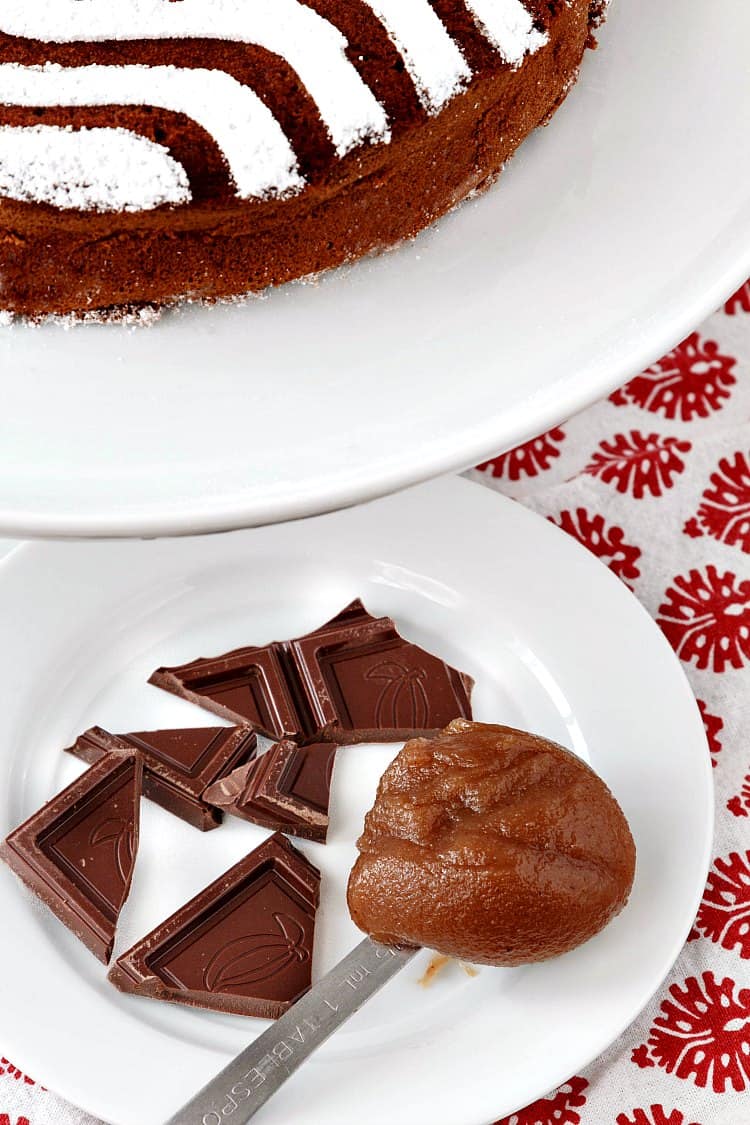
What Does Chestnut Puree Taste Like?
Even though I love the song, I had never eaten chestnuts roasted on an open fire, or chestnuts in any form, so I really didn’t know what to expect from the canned, sweetened puree.
The puree is a deep reddish-caramel color that tastes mildly nutty and very fruity.
A lovely complement to the chocolate.
Not sure you like chestnut or that you can find chestnut cream where you live? Try this spectacular flourless chocolate torte instead. Delicious!
Chocolate Chestnut Torte FAQ
If you are new to making French-style tortes, I have put together this handy Q & A section. If you have other questions, please feel free to email me. I am happy to help!
No. I promise. Once you get your hands on chestnut puree, whipping up the batter requires just a handful of ingredients and simple techniques. As a matter of fact, I made the chocolate chestnut torte using only 2 bowls, a broad silicone spatula, and my hand mixer. That’s right. I didn’t even have to bust out the
Let’s see. Maybe 2 minutes to melt the butter and chocolate together in the microwave, another 4-5 minutes to whip the whites into a glossy meringue, and another few seconds to fold everything together and bake. Honestly, even if you’re a little concerned about making a chestnut chocolate torte, Alice Medrich’s instructions are very clear, and you should have the batter together and in the oven in no more than maybe 15 minutes.
Baking time is about 40 minutes.
If you’re a crafty person, you’re going to be in heaven. I made a stencil using the detailed instructions on pages 186-188 of Cocolat! I got to use an Xacto knife and Everything. Actually, I used a razor knife/box cutter deal, and it worked out just fine. If you’re super crafty, you can even go to town with your Silhouette Machine and make All The Stencils.
That’s a good question. There’s a specific type of powdered sugar called sugar snow or sucre neige you can buy that doesn’t melt into cakes. It is basically powdered glucose rather than sucrose. It tastes slightly less sweet than regular powdered sugar, but it is not affected by moisture or temperature and stays beautifully white.
Honestly, it’s so rich and decadent, it doesn’t need much. Some soft, hand whipped cream is really all it needs. Read about how to whip cream by hand in this post. You could also use a bit of lightly sweetened creme fraiche.
Don't let its small price and small size fool you. The Escali Primo is an accurate and easy-to-use food scale that I have used for years. It's easy to store, easy to use, has a tare function, and easily switches between grams and ounces/pounds for accurate measurements.
**Note, I am copying the text exactly as Alice Medrich wrote it.
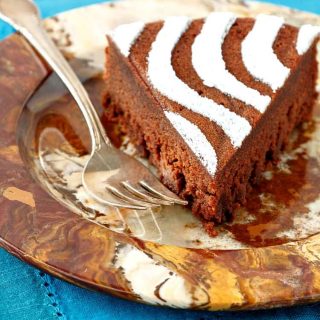
Chocolate Chestnut Torte Recipe
Would you like to save this post?
Equipment
Ingredients
- 4 oz semisweet or bittersweet chocolate cut into bits (no more than 66% cocoa mass
- 4 oz sweet butter cut into pieces
- 4 large eggs separated
- 1 cup canned sweetened chestnut puree
- 1 teaspoon vanilla extract
- ¼ cup flour 1 oz
- ⅛ teaspoon cream of tartar
- ¼ cup granulated sugar
- 2-3 Tablespoons confectioner’s sugar optional for stencil
- Chilled Creme Fraiche for serving optional
Instructions
- Preheat oven to 350F. Line bottom of 8 x 2-inch round cake pan with parchment.
- Melt chocolate and butter in a small bowl placed in a barely simmering water bath over low heat, stirring occasionally until smooth. Remove from heat. Or, microwave on medium (50%) for about 1 minute and 30 seconds. Stir until completely melted and smooth. Set aside.
- In a bowl, whisk egg yolks, chestnut puree, vanilla, and flour. Stir in chocolate mixture; set aside.
- Beat egg whites and cream of tartar in a clean, dry mixing bowl at medium speed until soft peaks form. Gradually sprinkle in granulated sugar, beating at high speed, until stiff but not dry. Fold about one-quarter of egg whites into chocolate batter to lighten it. Quickly fold in remaining whites. Turn mixture into prepared pan and smooth top. Bake for 40-45 minutes, until a toothpick or wooden skewer plunged into the center comes out moist, but not gooey.
- Cool torted completely in pan on a rack. It will have risen and then fallen in the center, leaving a higher rim of cake around sides and possibly some cracking. Level and unmold tore onto an 8-inch corrugated cake circle according to instructions, page 175. (See Notes). Torte may be made to this point up to 3 days in advance. Wrap well and refrigerate until needed, or freeze for up to 3 months. Let come to room temperature before serving or decorating.
- Simply dust or stencil with confectioners’ sugar. Serve with Creme Fraiche.
Did You Make Any Changes?
Notes
- Run a small metal spatula or knife between the edges of the torte and the sides of the pan to release it.
- Press the raised edges of the torte town with your fingers until it is level with the center.
- Place a cardboard cake circle on the torte. If you have used a springform or cheesecake pan, release the sides and invert the torte to that the bottom becomes the top, then remove the pan bottom and paper liner.
- If you have not used a pan with removable sides, invert it and rap gently against the counter until the torte slips out.
- Remove the pan and the paper liner from the bottom of the torte. If the torte is uneven or still appears slightly sunken in the middle, level it again by pressing the top firmly with the bottom of the empty cake pan.
- The torte is now ready to crumb-coat and glaze.
Nutrition
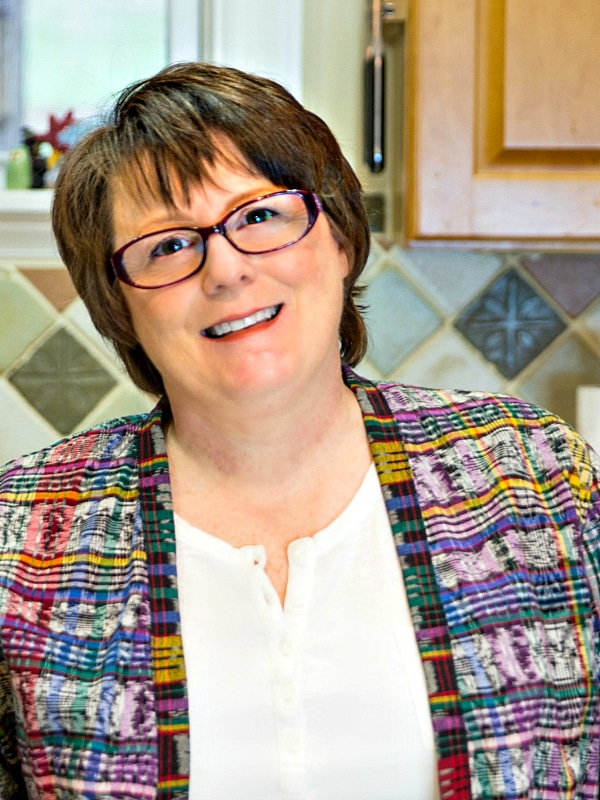
Hi, y’all! I hope you’ve enjoyed this post and hopefully also learned a thing or two.
If you like my style, I invite you to sign up for my occasional newsletter, The Inbox Pastry Chef.
Expect updates on new and tasty recipes as well as a bit of behind-the-scenes action. I hope to see you there!

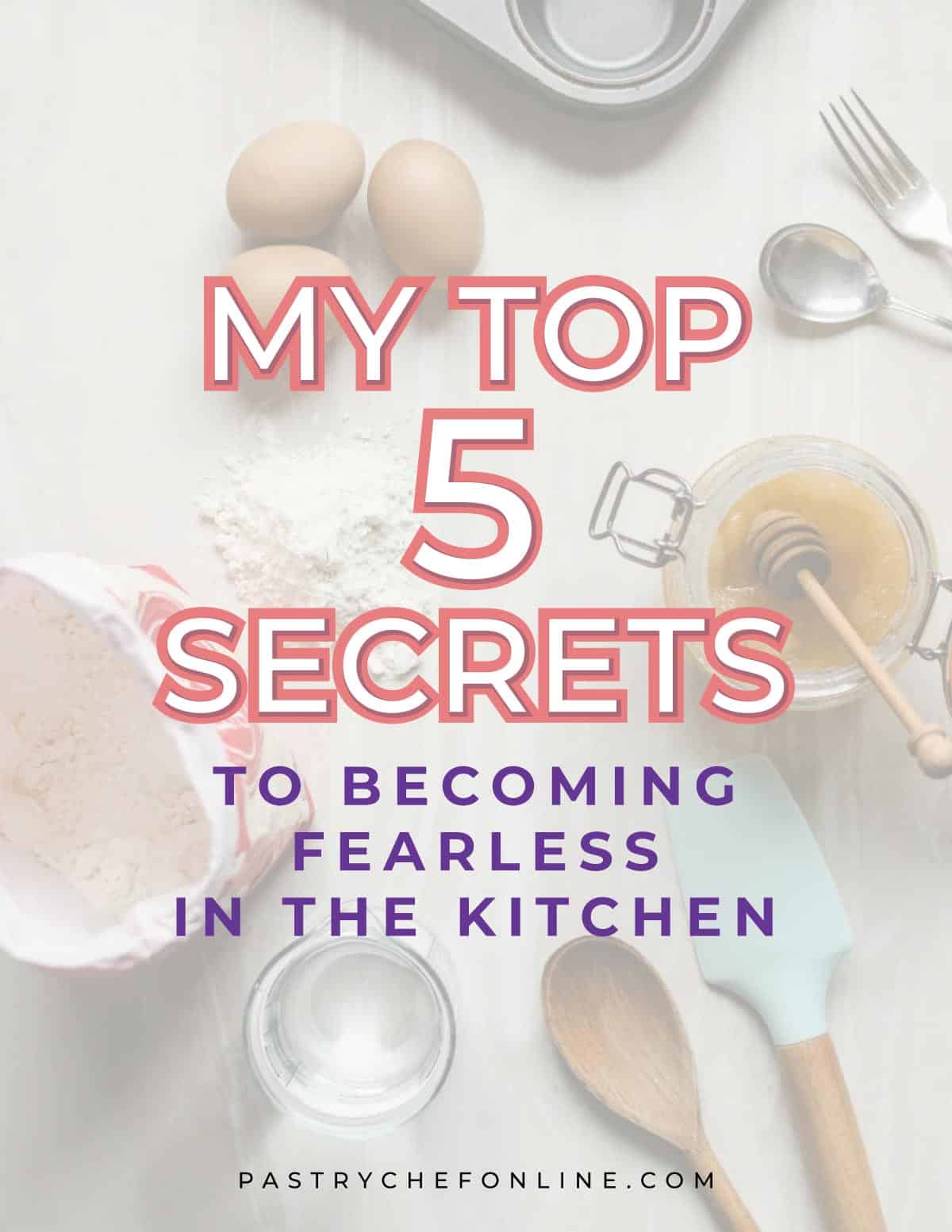
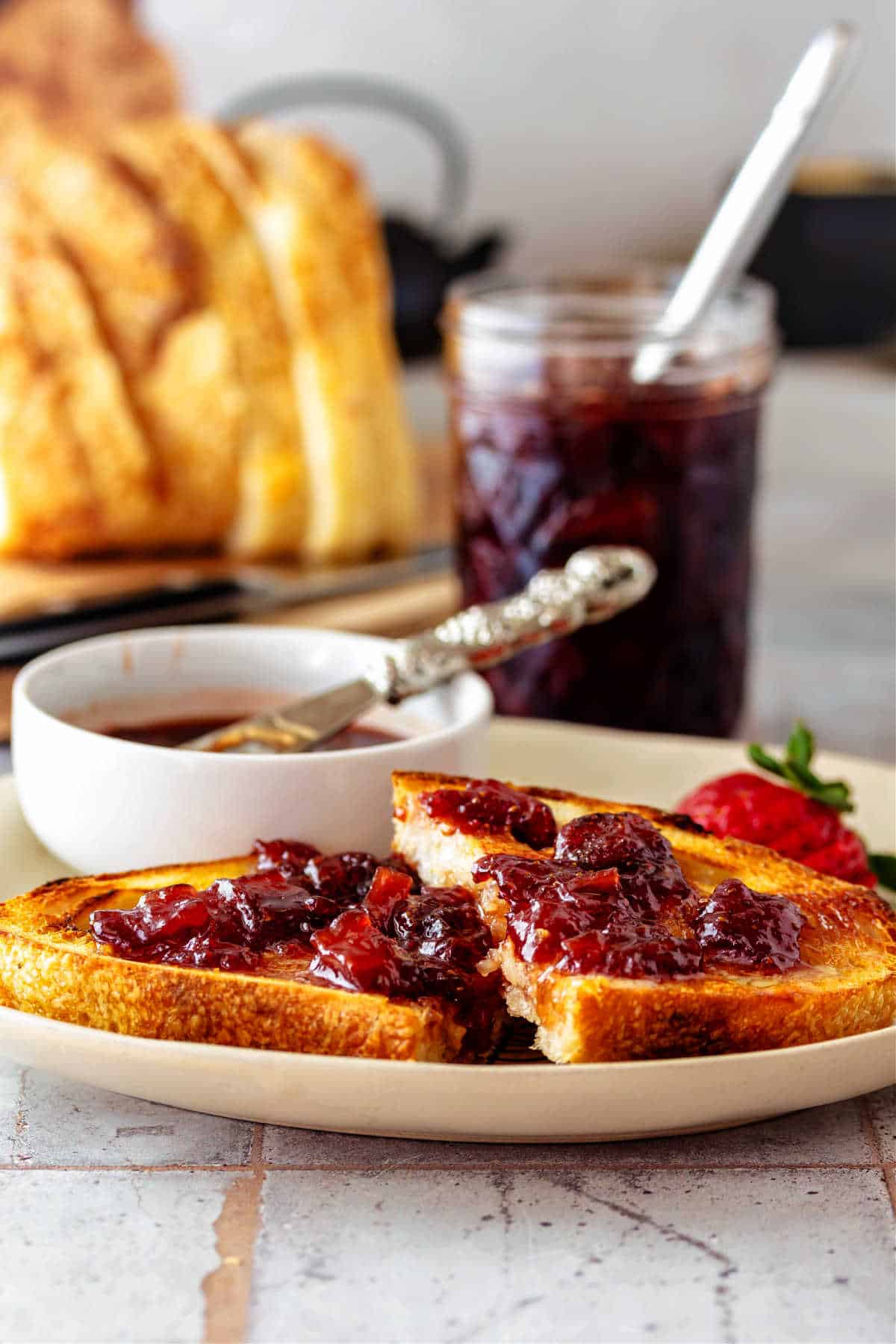
Join in Today!
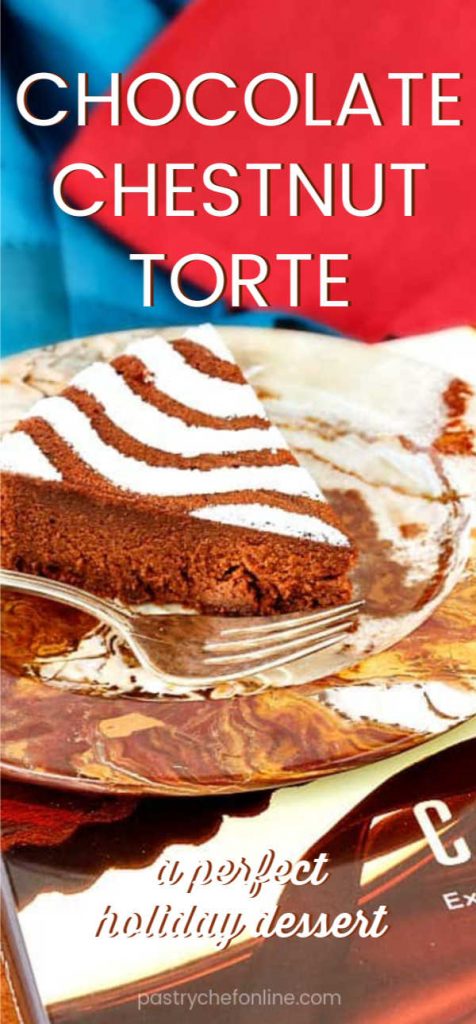
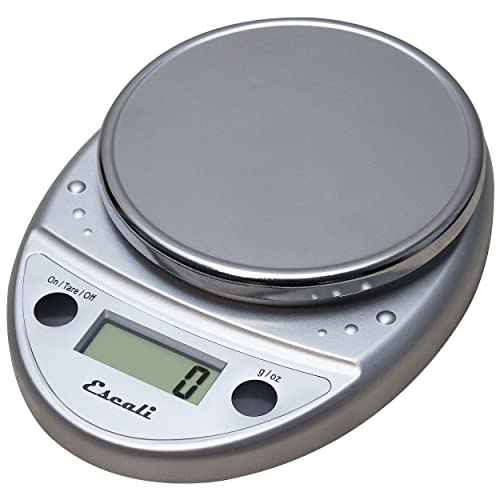

Hello! I am commenting to ask you about the chocolate chart you have in your version of Cocolat by Alice Medrich. I found an old copy at wonder books and I don’t see a chocolate chart in mine? Can you tell me if it was an insert or even better can you tell me the suggested chocolate for the Italian cherry torte? Hope to hear from you!
Hey, Emily! I will track down my copy of her book and send you pix. Is this your correct email?
My Louisiana roots are pushing me towards the Picayune’s Creole Cook Book! I mean, assuming I win the giveaway. 🙂
A perfect fit! Good luck, Stacy!
I’m eyeing the soup book. 800+ recipes? There are bound to be a few I can make successfully!
I love a good “encyclopedia” with tons of recipes! Good luck!
Austrian Cooking & Baking looks interesting! They make amazing pastries … Thank you for the great giveaway!
Yes, the Austrians know their way around a pastry or three! Good luck, Paula!
Complete Guide to Home Canning and Preserving (Second Revised Edition)
Great! Good luck in the giveaway!